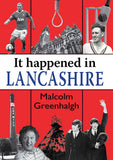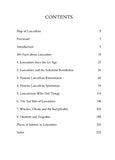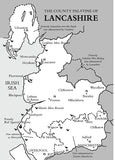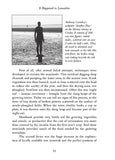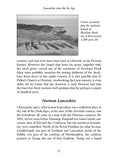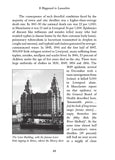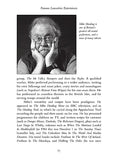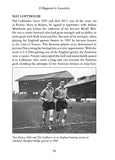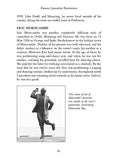It Happened in Lancashire
by Malcolm Greenhalgh
From the world’s largest tripe factory to the Battle of Wigan Lane; from the Peterloo massacre to the first British canal – Lancashire can claim it all.
It was one of the poorest parts of Britain due to its difficult terrain, poor soil, estuaries and bogs, but it went on to become one of the wealthiest through coal, cotton and slavery. Lancashire had:
• the first town to be lit by gas
• the first council houses
• the first motorway.
Its people included:
• the last hangman
• the most charismatic modern barrister, George Carmen
• urbane broadcaster Alistair Cooke
• great actors including Thora Hird, Leonard Rossiter and Ian
McKellern.
It has suffered some of the greatest tragedies: the massacre of the Lancashire Pals in 30 minutes of the First World War; countless pit disasters; the pounding of the Blitz
But it replied by producing some of the greatest comedians: from George Formby to Ken Dodd to Peter Kay. Not to mention the many great cricketers, rugby players and footballers.
A lively and informative book.
Availability:
Illustrations:
50 Black & white photographs, 1 Maps
Pages:
224
Published:
Mar 01, 2012
ISBN:
9781906122393
About the Author:
The Lancastrian name of Greenhalgh comes from the hamlet of that name between Kirkham and Poulton-le-Fylde (a de Greenhalgh was there in about 1270). Malcolm Greenhalgh was born in Bolton, and educated at Kirkham Grammar School and Lancaster University. After that he moved to Tarleton, working and lecturing on wildlife on the Ribble. He finally settled in Lowton, where he worked as a freelance writer, spending much time researching books about north-west England. His first book was Wildfowl of the Ribble Estuary (1975), and more recent ones include Flavours of Lancashire and The Ribble: River and Valley.
He said: ‘I am proud to have the Queen as Duke of my County Palatine!
Malcolm also wrote extensively on natural history and angling. He co-wrote, with Hugh Falkus The Salmon and Seatrout Fisher's Handbook. He attended international conferences on salmon and worked closely with many of the leading conservationists.
He died on 24 October 2019.










